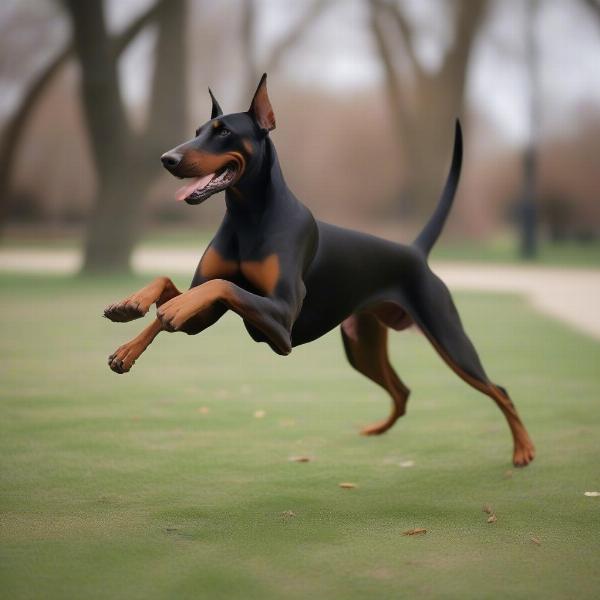The term “devil dog hostess” doesn’t actually refer to a specific dog breed. It’s more likely a misinterpretation or a playful nickname. While there’s no official “devil dog” breed, the term is often associated with the Doberman Pinscher, a breed known for its intelligence, loyalty, and sometimes intimidating appearance. This article will explore the possible origins of the term “devil dog hostess” and delve into the characteristics of breeds commonly associated with it, particularly the Doberman. We’ll also discuss responsible pet ownership, including training, health, and socialization, to ensure a harmonious relationship between any “devil dog” and its hostess.
The term “devil dog” likely arose during World War I, attributed to the US Marine Corps and their fierce canine companions, often German Shepherds. These dogs were highly trained and played a crucial role in military operations. Over time, the term “devil dog” became associated with other breeds perceived as intimidating, like the Doberman. Therefore, a “devil dog hostess” would likely be someone who owns and cares for a dog with this kind of reputation, often a Doberman.
Understanding the Doberman Pinscher
Dobermans are known for their intelligence and trainability. They excel in various canine activities, including obedience, agility, and protection work. While their appearance can be intimidating, Dobermans are often affectionate and loyal companions to their families.
 Doberman playing with its owner
Doberman playing with its owner
Responsible “Devil Dog” Ownership
Whether your “devil dog” is a Doberman or another breed with a strong presence, responsible ownership is crucial. This includes:
- Training and Socialization: Early socialization and consistent training are essential for any dog, especially those perceived as intimidating. This helps them develop into well-adjusted, confident companions.
- Health and Care: Regular veterinary checkups, a balanced diet, and appropriate exercise are vital for maintaining a dog’s physical and mental well-being.
- Understanding Breed Specific Needs: Researching and understanding the specific needs of your chosen breed, whether it’s a Doberman, Rottweiler, or another powerful breed, will help you provide the best possible care.
Dispelling the “Devil Dog” Myth
It’s important to remember that a dog’s temperament is influenced by factors like genetics, environment, and training, not solely by breed. With proper socialization and training, any dog, even one labeled a “devil dog,” can become a loving and well-behaved member of the family.
Conclusion
While the term “devil dog hostess” might conjure images of a fierce canine and its devoted owner, it’s essential to look beyond labels. Responsible ownership, including training, socialization, and proper care, is key to nurturing a positive relationship with any dog, regardless of its breed or perceived reputation. Remember, a well-trained and loved dog, even one sometimes called a “devil dog,” can be a loyal and cherished companion.
FAQ
- What is a “devil dog hostess”? The term is a colloquialism, not a formal designation. It likely refers to someone who owns and cares for a dog breed often perceived as intimidating, like a Doberman.
- Are Dobermans aggressive? Like any breed, a Doberman’s temperament is influenced by factors like genetics, environment, and training. With proper socialization, they can be loving and loyal companions.
- What is the best way to train a “devil dog”? Positive reinforcement methods, focusing on rewarding desired behaviors, are generally considered the most effective.
- How can I socialize my “devil dog”? Expose your dog to various people, places, and situations from a young age to help them become well-adjusted.
- Are “devil dogs” suitable for families with children? With proper training and supervision, many breeds often labeled “devil dogs” can thrive in family environments.
dog friendly accommodation north stradbroke island
stradbroke dog friendly accommodation
About ILM Dog: ILM Dog is your trusted resource for comprehensive dog care information, offering expert advice on breed selection, health, training, nutrition, and more. From puppyhood to senior care, we’re dedicated to helping you navigate every stage of your dog’s life. We specialize in providing breed-specific guidance, ensuring your canine companion receives the best possible care. For inquiries or expert advice, contact us at [email protected] or +44 20-3965-8624.